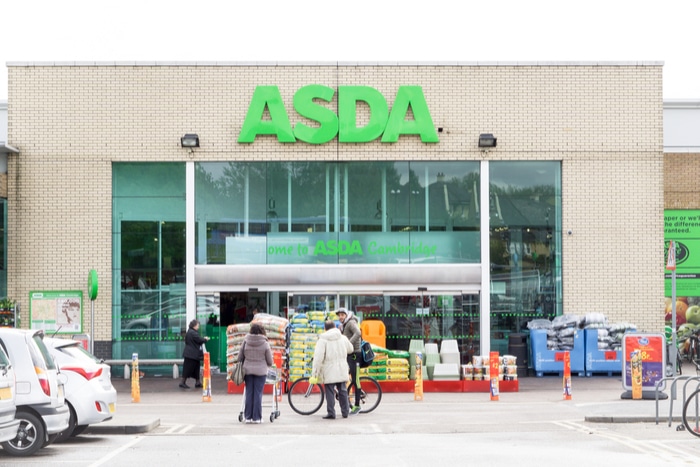// Asda equal pay case will head to the Supreme Court
// The UK’s biggest equal pay case was originally brought by Asda shop floor workers, represented by law firm Leigh Day
// Asda has already lost three times and will have one more attempt to appeal
An equal pay case against Asda is heading to the Supreme Court after it agreed to consider an appeal brought by the Big 4 grocer.
The Supreme Court is set to consider whether Asda shop floor workers – most of whom are women – can be compared to predominantly-male distribution centre staff for the purposes of equal pay.
Dubbed the UK’s biggest equal pay case, it was originally brought by Asda shop floor workers who are represented by law firm Leigh Day.
READ MORE:
Asda has already lost first stage of the equal pay case three times and will have one more attempt to defeat the claims brought by over 35,000 of it staff.
The Supreme Court is the final court of appeal in the UK for civil cases, taking on cases of the public or constitutional importance affecting the whole population.
The Court of Appeal ruled in January this year that the roles of the shop floor workers could be compared to the roles of those in the distribution centres for the purposes of equal pay.
The Employment Tribunal had first issued a similar ruling in October 2016, and this was confirmed by the Employment Appeal Tribunal in August 2017.
A date has not yet been set for the final appeal for the Asda equal pay case at the Supreme Court.
“It is disappointing that Asda has refused to accept the ruling of three courts on the issue of comparability,”Leigh Day solicitor Lauren Lougheed said.
“However, our clients from Asda and across all the big five supermarkets should not be disheartened, we are as determined as ever to continue their fight for equal pay.
“We hope that we can win on this issue for the fourth time in the Supreme Court, to prove once and for all that the roles are comparable, and continue on to win the overall fight for equal pay for our clients.”
An Asda spokesperson said: “This equal value case is extremely complex and without precedent in the private sector, so it is vital the issues are given the legal scrutiny they deserve. Whatever the final outcome, the implications for UK businesses, not just in retail, will be far-reaching.
“Leigh Day have also appealed points they have lost. None of the appeals have caused any delay to the case, which continues to progress through the tribunal, but it will still take many years to conclude.
“Our hourly rates of pay in stores are the same for female and male colleagues and this is equally true in our depots. Pay rates in stores differ from pay rates in distribution centres because the demands of the jobs in stores and the jobs in distribution centre are very different; they operate in different market sectors and we pay the market rate in those sectors regardless of gender. ”
Should the Supreme Court rule that the roles in question are comparable, Asda staff will still need to demonstrate that the roles are of equal value in order to win the right to equal pay.
Leigh Day said it represents over 40,000 shop floor staff in total from Asda, Sainsbury’s, Tesco, Morrisons and the Co-op – in similar equal pay cases which will be impacted by this judgment.
The law firm said the total estimate of the claims against the five supermarkets, if they lose their cases and are ordered to pay all eligible staff, could be over £8 billion.
Click here to sign up to Retail Gazette‘s free daily email newsletter


















